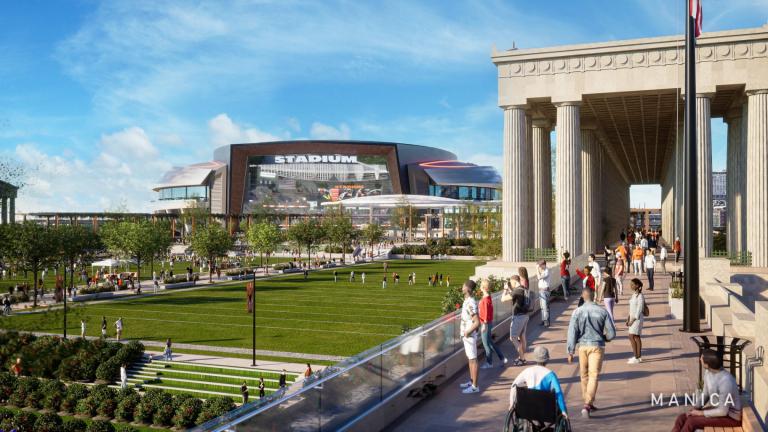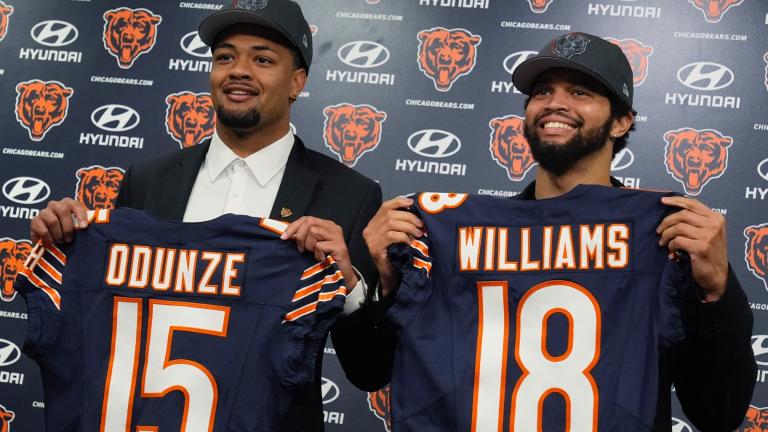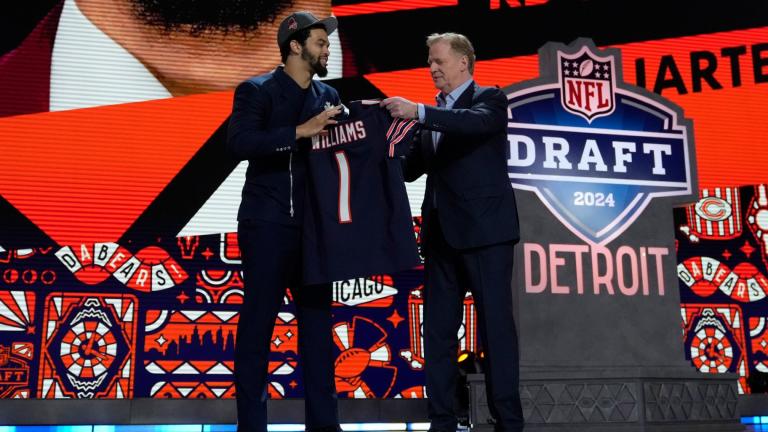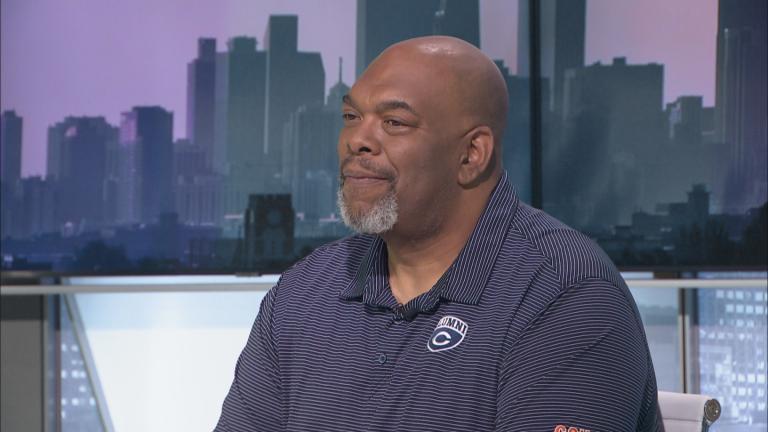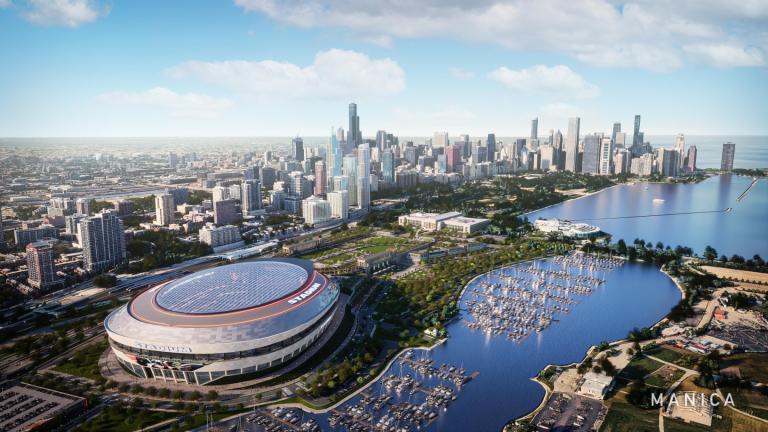The location of the Chicago Bears’ new stadium has been a point of conversation for the last few years with a debate over whether the team will remain in the city or move to the suburbs.
Last week’s announcement of a proposed new domed, lakeside stadium brought with it more questions. Namely, the price tag.
The team said they’re ready to front $2 billion of an estimated $4.75 billion price tag.
Although Frank Bilecki, executive director of the Illinois Sports Facilities Authority, told the Chicago Sun-Times that number is more like $6.9 billion.
However, the Bears say that the new stadium would lead to an $8 billion economic impact on the region, creating 43,00 construction jobs and 4,200 new annual jobs once they’re operating.
Whether the high cost will have an eventual payoff is unlikely, according to University of Chicago sports economist Allen Sanderson.
“There are only two things you don’t want to put on a valuable piece of real estate. One is a cemetery and the other is a football stadium,” Sanderson said. “After that, everything’s negotiable.”
Sanderson estimates over 70% of the Bears’ revenue comes from television, which is also true for the other 31 NFL teams.
“They could play their games in the middle of Iowa and it wouldn’t make much of a difference,” said Sanderson.
The other portion of the Bears’ plan that has come under scrutiny is the location.
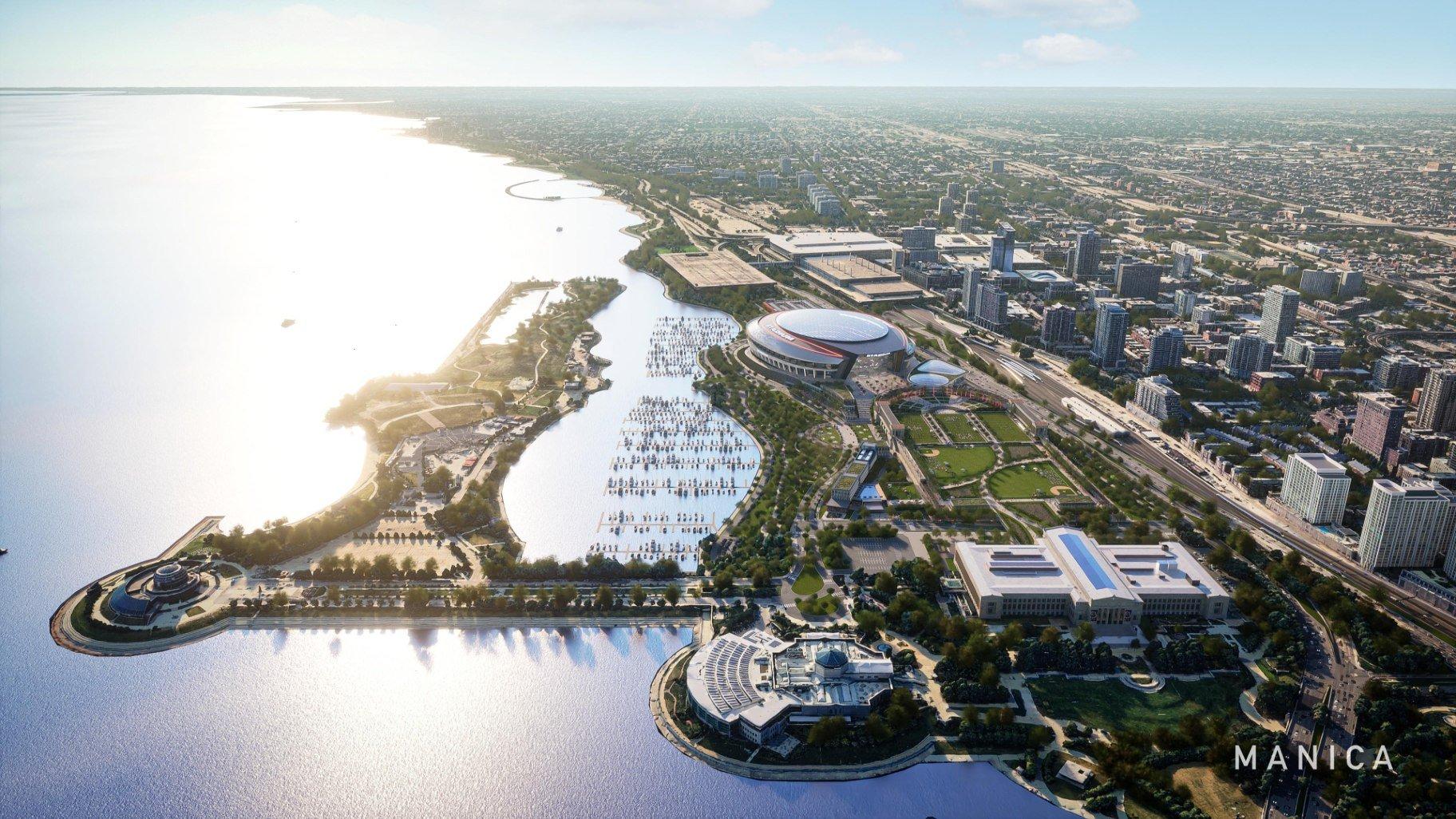 A rendering of the proposed new stadium for the Chicago Bears on a redesigned Museum Campus. (Credit: Chicago Bears)
A rendering of the proposed new stadium for the Chicago Bears on a redesigned Museum Campus. (Credit: Chicago Bears)
The new location is set to be just south of Soldier Field alongside the coveted lakefront, which has drawn swift criticism from Friends of the Park. In a statement the group said: “Why does it always come down to ‘we want our playground on the lake, or we will go somewhere else?’ Is that fair to the rest of Chicago? It’s business as usual to have wealth and power dictating public policy, but is that a best practice for Chicago to follow?”
The nonprofit organization previously blocked the Lucas Museum of Narrative Arts from building on the lakefront to “preserve Chicago’s public waterfront.” Similarly, they’ve suggested the new Bears’ stadium consider a space like the site of the old Michael Reese hospital in Bronzeville.
They maintain any further progress with the stadium needs to slow down and involve stakeholders.
“Why the lakefront? What is the highest and best use that we would make here?” said Joe Ferguson, president of the Civic Federation. “Really what needs to be done here, and this is what concerns me about what’s happened so far, the city has abdicated its role to actually be a neutral broker in the best interest of the public and the taxpayer here.”
Mayor Brandon Johnson enthusiastically backed the football team’s news in last week’s press conference, exclaiming “The Bears are staying in Chicago.”
Ferguson says what’s needed is an independent economic analysis to consider what benefits come from already having a football stadium downtown and determine what the alternatives might be.
The team says if approved, the stadium could be ready by 2028.


